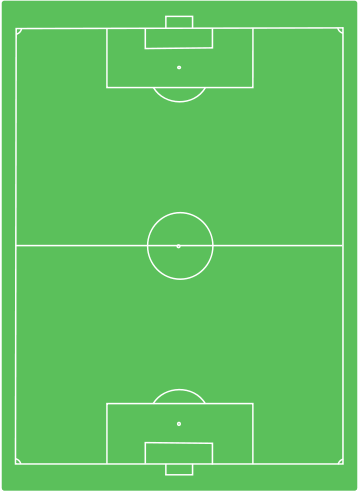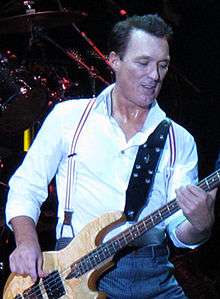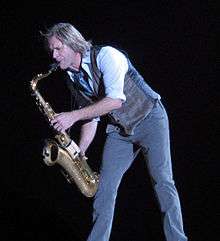Melchester Rovers
 | |||
| Full name | Melchester Rovers Football Club | ||
|---|---|---|---|
| Nickname(s) | The Rovers | ||
| Founded | 1888 | ||
| Ground | Mel Park, Melchester | ||
| Capacity | 56,000 | ||
| Managers | see list | ||
| League |
FA Premier League Football League First Division Football League Second Division (fictional) | ||
|
| |||
Melchester Rovers are a fictional football team with whom Roy Race spent most of his illustrious career in the British comic strip Roy of the Rovers, which first appeared in Tiger at its inception in 1954.
History
Early years
According to the comic strip's continuity, Melchester Rovers were founded in 1885 winning at least three League Championships and a number of FA Cups during the pre-war years of their existence. In 1954, however, the first Roy of the Rovers strip appeared, telling the story of the club and its star striker Roy Race (whose grandfather, Billy Race, had played for the club in the early part of the 20th Century). Melchester finally became League Champions in 1958, and won the FA Cup the following season, by which time Race was captain.
1960s
It was in the 1960s, however, that Rovers became a footballing force to be reckoned with. The decade brought three league titles, two FA Cups, two European Cups, one European Cup Winners' Cup and one Intercontinental Cup. It wasn't a decade without its problems, though, and in an example of the topsy-turvy nature of the history that would follow, Rovers only narrowly avoided relegation at the end of 1967, the same year they won the Cup Winners' Cup.
1970s
Charlie
CARTER Noel
BAXTER Lofty
PEAK Duncan
MCKAY Jimmy
SLADE Gerry
HOLLOWAY Blackie
GRAY Geoff
GILES Vernon
ELIOT Mervyn
WALLACE |
| Melchester Rovers 1976/77 |
In 1972, Rovers achieved their first – and currently only – League and Cup "Double", and later that year, long-serving team manager Ben Galloway was promoted upstairs to General Manager, with former Rovers winger Tony Storme taking over team affairs. His tenure began well, with a third European Cup win in 1973 against Corados of Portugal (2-0), and Rovers began the next season with an all-new, modern strip and a strong sense of optimism. Poor results and a spate of injuries, however, meant a demoralising first half of the season, with many of the team believing the new kit was "jinxed". Happily, this was overcome, and despite a disappointing league season, achieved their first domestic cup double, winning the League Cup in addition to another FA Cup. In 1975, though, a humiliating defeat in the 3rd Round of the Cup to non-league minnows Sleeford Town (1-2) led to the disappearance of manager Tony Storme. Roy Race took over as player-manager, and kept the post when Storme came out of hiding some months later and made his retirement official. Race's Melchester won a trophy at their first attempt, the 1975 Cup Winners' Cup v Niarkos of Greece (2-0).Vic Guthrie came in on a free transfer at the start of the season and only made two sub appearances, before being put out on loan to Blantyre Vics, after being caught putting dug shite in Roy Race's boots.
The first title under Roy came two years later, in 1977, the season in which a supermarket chain offered a (then) staggering £30,000 to the first player in England to score 50 League and Cup goals. The competition went down to the last day of the season, and was won by Mervyn Wallace, despite many fans' belief that Race himself had got the last touch on what would have been his 50th goal. Controversy reigned in 1978, when it was rumoured that Race was due to accept a £1million offer to take over as team manager of Middle-Eastern state Basran. Rovers' form slumped, and Ben Galloway temporarily took back over as manager. However, once the rumours were quashed, Roy was reinstated and Rovers pulled themselves out of the relegation zone, the 1978–79 season ending in style with a UEFA Cup win.
1980s
The 1980s were full of drama with many events of a "soap opera" style, the sort that would eventually inspire series like Sky One's Dream Team. Melchester were League Champions in 1979–80 but were relegated to Division Two by one goal just one year later. The 1981–82 season saw a potential tragedy when Roy was shot by a jealous actor, Elton Blake, who was due to play him in a TV series about the club. Rovers set a new league goal-scoring record – 14–0 against Keysborough – an event that saw Roy recover from his coma when the commentary was played in the hospital. Sir Alf Ramsey managed the club during this period and helped Rovers to set a new league record of 34 games undefeated and comfortably win the Second Division. Roy recovered to start the 1982–83 season where Mel Park becomes Britain's first all-seater stadium. However, in April 1983 Roy sensationally quit Melchester after a row with Rovers chairman Sam Barlow and signed for Walford Rovers. Blackie Gray was appointed new player-manager, but his reign was short-lived, as Roy returned in December 1983 and led an injury-ravaged Rovers to an unlikely FA Cup win over Walford. They followed up this dramatic FA Cup win with an equally dramatic European Cup-Winners' Cup victory on penalties against Real Santana of Spain in 1985 (Rovers would not reappear in Europe for another five years due to English clubs being banned). The following season was an eventful one, as Roy shook up the team by signing retired players turned TV pundits Bob Wilson and Emlyn Hughes, as well as two members of pop group Spandau Ballet. Rovers won the Milk Cup, beating Tynecaster 3–0 and set a new league record of 12 consecutive games without conceding a goal, but in the close season, the club faced its biggest tragedy ever when a terrorist bomb in Basran killed eight team members – Noel Baxter, Vic Guthrie, Steve Naylor, Carl Hunt, Neville Jones, Kenny Logan, Jimmy Slade and Trevor Cassidy. Roy dedicated Rovers' 2–1 League Cup Final win over Stambridge City in 1987 to those players. 1987–88 saw the club become League Champions once again, but they were fighting relegation in 1988–89 during a season that saw them play most of their home matches at Wembley Stadium after massive local subsidence during a match led to Mel Park being closed for major reconstruction. Rovers avoided relegation with a 3–1 win over Melboro' in the season's final match.
1990s
Rovers started the decade well by winning the 1990 FA Cup Final, 2–1 against Weston Villa. They were League Champions in 1991–92 while Roy set a new league goal-scoring record, notching up his 436th goal to win a charity bet with former record-holder and now TV pundit "Chippy" Croker (an obvious analogue for Jimmy Greaves). 1992–93 saw a season of turmoil when Roy resigned as manager live on Sky TV. He returned before the end of the season, but on the way to scout a promising youth player, crashed his helicopter and was left in a coma and badly injured. He recovered in time for the 1993–94 season, but learned that his left foot had been amputated. Recovering, he left England to become manager of Italian side AC Monza. With his departure, Rovers' fortunes became bleaker, occasional moments of brilliance from players such as Roy's son "Rocky" Race and the Nigerian Paul "Del" Ntende shining among the troubles, which included now-manager Blackie Gray resigning after receiving death threats, and the club only narrowly avoiding relegation in the 1993/94 season, with Rocky scoring a last-minute goal to save them. However, soon after that match a Melchester Director was found guilty of attempting to bribe the opposition to throw the game. They won the FA Cup in 1995 but, after the death of Rocky's mother Penny in a car crash in Italy, Rocky quit Rovers to join fierce local rivals Melborough. 1995–96 was a complete disaster for Rovers as more top players left after a bribery scandal shamed the club, and they were relegated at the end of the season into Division One. In 1996–97, Roy Race Sr. returned to manage the club, and arrived in time to save the Rovers from an impending second successive relegation. In 1997–98, Rovers finished the season fourth in Division One but won in the play-offs to gain promotion back to the Premier League. Following Rocky's transfer back to the club, they won the 1999 FA Cup in extra time, and the turnaround was complete in 1999–2000, when they won the Premier League title on the last day of the season, their first top-flight title in eight years and their most recent to date. The following season, Race was finally able to buy out the club's owners, the Vitner brothers, and the club began to look forward to the new millennium, with a planned move to an exciting new stadium under the ownership of their greatest hero.
Honours
Note that all records are fictional, and only date as far as 2000, the last completed season of the comic strip.
- First Division and Premier League[1] titles : 13
- 1932, 1934, 1938, 1958, 1960, 1963, 1968, 1972, 1977, 1980, 1988, 1992, 2000.
- Football League Second Division: 1
- 1982
- FA Cups: 11
- 1907, 1959, 1961, 1966, 1970, 1972, 1974, 1984, 1990, 1995, 1999
- League Cups: 3
- 1974, 1986, 1987
- European Cups: 3
- 1964, 1969, 1973
- UEFA Cups: 1
- 1979
- European Cup Winners' Cups: 4
- 1967, 1971, 1975, 1985
Melchester Rovers in European competitions
| Season | Competition | Round | Country | Club | Home | Away | Aggregate |
|---|---|---|---|---|---|---|---|
| 1961–62 | UEFA Cup Winners' Cup | First Round | Schonved | 0-0 | 1-2 | 1-2 | |
| 1963–64 | European Cup | First Round | Schonved | 1-0 | 1-0 | 1-0 | |
| 2. Round | Kelbridge City | 0-1 | 2-0 | 2-1 | |||
| Quarter-finals | Doledo | 1-1 | 2-1 | 3-2 | |||
| Semi-finals | Stalzburg | 3-0 | 0-1 | 3-1 | |||
| Final | Nettruno | –– | 1–0 | Winner | |||
| 1965–66 | Inter-Cities Fairs Cup | First Round | Trondheim | 0-0 | 0–1 | 0-1 | |
| 1966–67 | UEFA Cup Winners' Cup | Preliminary Round | Villa Florina | 0-1 | 3-1 | 2–1 | |
| First Round | Paniakos | 1-0 | 1-2 | 2-2(a) | |||
| Quarter-finals | Karspor | 3-0 | 0-2 | 3-2 | |||
| Semi-finals | Real Corbao | 1-2 | 2–0 | 3-2 | |||
| Final | Alcero Sporting | –– | 2-1 | Winners | |||
| 1968–69 | European Cup | Preliminary Round | Shevnik Sparta | 3-2 | 2-1 | 4-4(a) | |
| First Round | Dynamo Zerbat | 0-1 | 2-1 | 2-2(a) | |||
| Second Round | Racing Vardennes | 2-0 | 2-3 | 4-3 | |||
| Third Round | Limosia | 3-2 | 0-0 | 3-2 | |||
| Semi-finals | Leonardo Atletico | 1-1 | 1-0 | 2-1 | |||
| Final | Rapid Sadova | –– | 2-1 | Winner | |||
| 1970–71 | UEFA Cup Winners' Cup | First Round | Rythoven Olympic | 4-1 | 0-2 | 4-3 | |
| Second Round | Racing Lombardo | 3-0 | 0-2 | 3-2 | |||
| Quarter-finals | Hagenburg | 4-3 | 3-4 | 7-7 (penalties 3-2 (a)) | |||
| Semi-finals | Argavo Rapido | 2-2 | 2-1 | 4-3 | |||
| Final | Standard Wasserdam | –– | 2-1 | Winner | |||
| 1972–73 | European Cup | First Round | Hansberg | 2-1 | 1-0 | 3-1 | |
| Second Round | Real Montana | 1-1 | 3-1 | 4-1 | |||
| Semi-finals | Terino | 1-0 | 2-1 | 3-1 | |||
| Final | Corados | –– | 2–0 | Winner | |||
| 1974–75 | UEFA Cup Winners' Cup | First Round | Zeeden | 2-1 | 1-0 | 3-1 | |
| Second Round | Carford City | 2-0 | 1-1 | 3-1 | |||
| Quarter-finals | Vlatnia | Dynamo Zarnov | 2-2 | 1-0 | 3-2 | ||
| Semi-finals | Durmstadt | 4-0 | 1-3 | 5-3 | |||
| Final | Niarkos | –– | 2-0 | Winners | |||
| 1977–78 | European Cup | Quarter-finals | Vrayonne Rapide | 3-1 | 1-2 | 4-3 | |
| Semi-finals | Dorino | 0-0 | 1-0 | 1-0 | |||
| Final | Alkhoven | –– | 3-2 | Loss | |||
| 1977–78 | UEFA Cup | Third Round | Dynamo Zarcov | 4-1 | 1-0 | 5-1 | |
| Quarter-finals | Varagosa | 2-0 | 0-0 | 2-0 | |||
| Semi-finals | Sorbonne | 3-0 | 0-0 | 3-0 | |||
| Finals | Alkhoven | 0-1 | 2-1 | 3-3(a) | |||
| 1980–81 | European Cup | Fourth Round | Zalmo | ||||
| 1984–85 | UEFA Cup Winners' Cup | Third Round | Bokeren | 4-0 | 1-0 | 5-1 | |
| Semi-finals | Stahlberg | 5-0 | 2-0 | 7-0 | |||
| Final | Real Santana | –– | 2-2 (5-3) (p) | Winner | |||
| 1990–91 | UEFA Cup Winners' Cup | First Round | Verengen | 3-0 | 0-1 | 3-1 | |
| Second Round | Atletico Zamara | 3-1 | 0-1 | 3-2 | |||
| Semi-finals | Dynamo Vlaznia | 3-1 | 0-2 | 3-3(a) | |||
| 1991–92 | UEFA Cup | First Round | Bresden | 1-1 | 0-0 | 1-1(a) | |
| 1992–93 | UEFA Champions League | First Qualifying Round | Atletico Zarosa | 3-0 | 2-0 | 5-0 | |
| Second Qualifying Round | Bokeren | 1-1 | 2-0 | 3-1 | |||
| Second Qualifying Round | Bokeren | 1-1 | 2-0 | 3-1 | |||
| Group A, 1st game | Valmo | 0-0 | |||||
| Group A, 2nd game | Rapid Alkmar | 2-0 | |||||
| Group A, 3rd game | AC Gironde | 1–0 | |||||
| Second Round | 1–0 | ||||||
| 1999–00 | UEFA Cup | First Round | Real Corbao | ||||
| Second Round | Rassburg |
Opponents and rivalries
Although throughout Roy Race's playing career there was never a definitive list published of who the other teams in the First Division were, the majority of sides Rovers played against were familiar names who they opposed regularly in later years. These included: Blackport, Burndean, Carford City, Castlemere, Danefield, Deans Park, Eastoke, Gatesfield, Highwood Athletic, Holverton, Kelburn, Kingsbay, Melborough, Molton United, North Vale, Oldfield, Portdean, Redstoke, Rochington Rovers,Stambridge City, Everpool, Tynecaster, Walford Rovers (who Roy managed in 1983) and Weston Villa (also known as Western Villa). There were also several lower league sides who Rovers met in cup football and their occasional stints outside the top-flight, as well as foreign teams in European matches.
- Burndean: First Division 1974
- Portdean City: First Division 1956, 1961, 1970
- Kingsbay: First Division 1971, 1975
- Langdon United: First Division 1957
- Bamford Athletic: First Division 1959
- Carford City: First Division 1964, 1981
- Eastoke United: First Division 1966
- Prestwich: Premier League 1995
- Islington: Premier League 1994
- Tynecaster: First Division 1976, Premier League 2001
- Blackport Rovers: First Division 1975, League Cup 1982, European Cup 1976, UEFA Cup 1978 (from Nipper storyline)
For much of the story's history, Rovers' traditional local rivals were Melborough (sometimes shortened to Melboro). For decades, Melchester held the upper hand over their cross-city neighbours, but in later years Melborough became a major force and were in a higher division than Rovers in the late 1990s. Melborough often had outspoken managers, most notably Andy Jackson and Ralph Gordon (who made an ill-fated and unpopular switch to Rovers in 1992), to help intensify the rivalries.
Transfers
1955-56
- In: Roy Race (Melchester Rovers Youth), “Blackie” Gray (Melchester Rovers Youth), Arty Hedlow (Elbury Wanderers)
- Out:
1956-57
- In: Pierre Dupont (from Rochemont, France)
- Out:
1957-58
- In:
- Out: Andy McDonald (retired - became Melchester Rovers Assistant Manager)
1958-59
- In: Tubby Morton, Paddy Ryan, Dick Stokes
- Out: Pierre Dupont
1959-60
- In: Ken Harcombe
- Out: Mike Drury
1960-61
- In: Don Pike
- Out:
1961-62
- In: Ossie Jones
- Out: Paddy Ryan (Retired to be Principal at Spartan House Sports School)
1962-63
- In: Albert “Bomber” Reeves
- Out: Hughie Griffiths (retired)
1963-64
- In: Tony Storme
- Out:
1964-65
- In: Jumbo Trudgeon
- Out:
1965-66
- In:
- Out:
1966-67
- In: Ken Cooper (from reserves), Derek Millar (from reserves), Thumper Thorp
- Out: Bob Roberts (retired), Dave Williams (retired)
1967-68
- In: Terry West, Alec Blackburn, Andy Croydon.
- Out: Tony Storme (retired from football to take up an overseas army post).
1968-69
- In: Douglas Ballard (from Carford United, but was out a few months later), Geoff Giles, Lofty Peak (from Kingsbay)
- Out: Ossie Jones (took managers position at Highwood), Buster Brown (retired), Bomber Reeves (retired)
1969-70
- In: Vernon Eliot, Chris Dylan, “Chalkie” White, Eddie Eager
- Out: Tom Dawson
1970-71
- In:
- Out:
1971-72
- In: Noel Baxter, Ralph Derry.
- Out: Derek Millar, Ken Cooper.
1972-73
- In: Mervyn Wallace (from Cranville United), Peter Warner, Graham Show, …Ensworth, …Morris.
- Out: Eddie Eager, Chris Dylan, Chalkie White, Terry West.
1973-74
- In: Jimmy Slade, Charlie Carter, Eric Motson.
- Out: Andy Croydon.
1974-75
- In: Sammy Spangler (out a few weeks later).
- Out: Tubby Morton (retired to become Melchester Rovers 'A' team manager)
1975-76
- In: Gary Faine, Duncan McKay (from Portdean City), Gerry Holloway, Trevor Cassidy, Len Peters, Willy Edwards.
- Out: Ralph Derry, Jumbo Trudgeon (retired)
1976- 1977
- In: Roger Dixon (from Kingsbay)
- Out:
1977- 1978
- In:
- Out:
1978- 1979
- In: Paco Diaz (from Zaragosa, Spain)
- Out: Lofty Peak (to be coach of Basran national football team)
1979- 1980
- In:Vic Gurthie (from Westbury Town), Sandy Evans, Terry Keelan
- Out:
1980- 1981
- In: Steve Naylor, Mark Price, Walter Williams, Nat Gosden (Oldfield)
- Out: Roger Dixon (Melboro), Geoff Giles (Melboro)
1981- 1982
- In: Kenny Logan (Strathlane)
- Out:
1982- 1983
- In: Glenn Ritchie (Scotland)
- Out:Vernon Eliot (retired), Roy Race (to Walford Rovers)
1983- 1984
- In: Rob Richards, Neville Jones, Errol Bridger, Roy Race (from Walford Rovers)
- Out: Paco Diaz
1984- 1985
- In: Carl Hunt (Carford City), Mark Butler (Holverton), Andy Styles
- Out: Nat Gosden (retired)
1985- 1986
- In: Bob Wilson, Emlyn Hughes, Steve Norman, Martin Kemp
- Out: Mervyn Wallace (retired), Walter Williams (to Kingsbay)
1986- 1987
- In: Olly Olsen (Denmark), Steve Wooten, Mark Gray, Pak Soon,
Bruno Johnson, Johnny Dexter, (from Burnside Athletic), Kevin Clark, (from Selbridge United), Bruce Miller (from the Italian League)
- Out: Bob Wilson (retired), Emlyn Hughes (retired), Steve Norman (retired), Martin Kemp (retired)
- R.I.P.
Vic Guthrie, Trevor Cassidy, Carl Hunt, Kenny Logan, Steve Naylor, Jimmy Slade, Neville Jones and Noel Baxter
1987- 1988
- In: Wes Harper, Terry Spring
- Out: Bruce Miller (Dunston Town)
1988- 1989
- In:
- Out:
1989- 1990
- In:Andy McLaren (Glenrath), Gary Gunn (Portdean)
- Out:
1990- 1991
- In: Alex Ritchie, Des Chapman, Broz Bomber, Tommy Johnson, Bryan Jones, Nicky Watson, Dennis Tyler, Russell Wallace, Johnny Lake
- Out: Olly Olsen (Denmark), Bruno Johnson (retired), Duncan McKay
1991- 1992
- In: Karl Bruckner (Bresden, Germany), Nick Hardisty (Railford Town), Matt Croker (Deans Park)
- Out:
1992- 1993
- In: Derek Mostin (Selbridge Town)
- Out:
1993- 1994
- In: Rocky Race (Melchester Rovers Youth), Paul Ntende (Brixton), Tommy Goodes, Mark Giles, Steve Clark, Wes Harper
- Out: Matt Croker, Derek Mostin, Mark Gray, Terry Spring
1994- 1995
- In: Malandro (Italy), Kine, Kenny Bates
- Out:
1995- 1996
- In: Craig Foster, Paul Evans
- Out: Rocky Race (Melborough), Paul Ntende (Italy)
1996 - 1997
- In: Ritchie Lawrence, Andy Kerrigan
- Out: Andy McLaren, Johnny Dexter, Karl Bruckner, Malandro, Kevin Clark, Wes Harper, Tommy Goodes, Kenny Bates, Des Chapman, Steve Clark, Mark Giles, Kine
1997-1998:
- In: Anton Gronvold (Norway), Keith Durham, Dion Templeton (from non league), Jeff Cooper (Gatesfield), Andy Kerrigan (Melchester Rovers Youth), Jamie Nash, Rocky Race (Melborough)
- Out: Craig Foster (Melborough), Andy Styles
1998 - 1999
- In: Dino Marcello (AC Monza), Declan McKaffree (Ireland)
- Out:
1999 - 2000
- In: Per Enquvist (Norway), David Gates (Stockly Town)
- Out:
2000- 2001
- In:
- Out: Bean Argent (Castlemere), Gary Bracken
Notable players
No. 1, GOALKEEPER
-
 Len Dolland (1955-1958)
Len Dolland (1955-1958) -
 'Tubby' Morton (1958-1973, 1982-?)
'Tubby' Morton (1958-1973, 1982-?) -
 Charlie 'The Cat' Carter (1973-?)
Charlie 'The Cat' Carter (1973-?) -
 Terry Venner (1976-1977)
Terry Venner (1976-1977) -
 Sandy Evans (1979-1980)
Sandy Evans (1979-1980) -
 Walter Williams (1980-1985)
Walter Williams (1980-1985) -
 'Streaky' Styles (1984-1992)
'Streaky' Styles (1984-1992) -
 Bob Wilson (1985-1986)
Bob Wilson (1985-1986) -
 Nick "Rapper" Hardisty (1992-?)
Nick "Rapper" Hardisty (1992-?)
No. 2, RIGHT BACK
-
 Dave Williams (1955-1966)
Dave Williams (1955-1966) -
 Derek Millar (1966-1971)
Derek Millar (1966-1971) -
 Noel Baxter (1971-1986)
Noel Baxter (1971-1986) -
 Vic 'Superbrat' Guthrie (1979-?)
Vic 'Superbrat' Guthrie (1979-?) -
 Errol Bridger (1983-?)
Errol Bridger (1983-?) -
 Steve 'Nobby' Wooten (1986-?)
Steve 'Nobby' Wooten (1986-?)
No. 3, LEFT BACK
-
 Doug 'Bob' Roberts (1955-1966)
Doug 'Bob' Roberts (1955-1966) -
 Ken Cooper (1966-1971)
Ken Cooper (1966-1971) -
 Ralph Derry (1971-1975)
Ralph Derry (1971-1975) -
 Duncan McKay (1975-1990)
Duncan McKay (1975-1990) -
 Steve Naylor (1980-?)
Steve Naylor (1980-?) -
 Des Chapman (1990-?)
Des Chapman (1990-?)
No. 4, RIGHT HALF/CENTRAL DEFENDER
-
 Hughie Griffiths (1955-1962)
Hughie Griffiths (1955-1962) -
 Albert 'Bomber' Reeves (1962-1968)
Albert 'Bomber' Reeves (1962-1968) -
 Geoff Giles (1968-1980)
Geoff Giles (1968-1980) -
 Steve Naylor (1980-1986)
Steve Naylor (1980-1986) -
 Nat 'Grandad' Gosden (1980-1984)
Nat 'Grandad' Gosden (1980-1984) -
 Jimmy Slade (1973-1986)
Jimmy Slade (1973-1986) -
 Mark Butler (1982-?)
Mark Butler (1982-?) -
 Mark 'Cracker' Gray (1986-?)
Mark 'Cracker' Gray (1986-?) -
 Terry Spring (1989-?)
Terry Spring (1989-?) -
 William 'Blackie' Gray (1955-1990)
William 'Blackie' Gray (1955-1990) -
 Alex Ritchie (1990-1991)
Alex Ritchie (1990-1991) -
 Karl Bruckner (1991-?)
Karl Bruckner (1991-?)
No. 5, CENTER HALF/CENTRAL DEFENDER
-
 Andy McDonald (1955-1958) (captain)
Andy McDonald (1955-1958) (captain) -
 Paddy Ryan (1958-1961)
Paddy Ryan (1958-1961) -
 Don Pike (1961), stand-in player, a local journalist
Don Pike (1961), stand-in player, a local journalist -
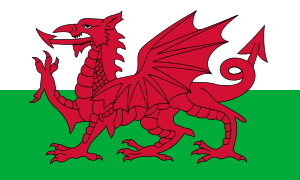 Ossie Jones (1961-1968)
Ossie Jones (1961-1968) -
 Douglas Ballard (1968)
Douglas Ballard (1968) -
 Andy Croydon (1968-1973)
Andy Croydon (1968-1973) -
 Jimmy Slade (1973-1986)
Jimmy Slade (1973-1986) -
 Mark Price (1980-1981)
Mark Price (1980-1981) -
 Vic 'Superbrat' Guthrie (1979-?)
Vic 'Superbrat' Guthrie (1979-?) -
 Steve Naylor (1980-1986)
Steve Naylor (1980-1986) -
 Bruno Johnson (1986-1990)
Bruno Johnson (1986-1990) -
 Johnny 'The Hardman' Dexter (1986-?)
Johnny 'The Hardman' Dexter (1986-?)
No. 6, LEFT HALF/CENTRAL MIDFIELDER
-
 Buster Brown (1955-1968)
Buster Brown (1955-1968) -
 'Lofty' Peak (1968-1979)
'Lofty' Peak (1968-1979) -
 Mervyn Wallace (1972-?)
Mervyn Wallace (1972-?) -
 Alan Lynch (1980-?)
Alan Lynch (1980-?) -
 Jimmy Slade (1973-1986)
Jimmy Slade (1973-1986) -
 Steve Naylor (1980-1986)
Steve Naylor (1980-1986) -
 Mark Butler (1982-?)
Mark Butler (1982-?) -
 Trevor Cassidy (1975-1986)
Trevor Cassidy (1975-1986) -
 Emlyn 'Crazy Horse' Hughes (1985-1986)
Emlyn 'Crazy Horse' Hughes (1985-1986) -
 Johnny 'The Hardman' Dexter (1986-?)
Johnny 'The Hardman' Dexter (1986-?) -
 Kevin Clark (1987-?)
Kevin Clark (1987-?) -
 Terry Spring (1990-?)
Terry Spring (1990-?)
No. 7, RIGHT WINGER
-
 Charlie King (1955-1956)
Charlie King (1955-1956) -
 Pierre Dupont (1956-1958)
Pierre Dupont (1956-1958) -
 Dick Stones (1958-1963)
Dick Stones (1958-1963) -
 Ted Carter (1963-1965)
Ted Carter (1963-1965) -
 Tony Storme (1965-1967)
Tony Storme (1965-1967) -
 Terry West (1967-1972)
Terry West (1967-1972) -
 Mervyn Wallace (1972-?)
Mervyn Wallace (1972-?) -
 Paco Diaz (1979-1983)
Paco Diaz (1979-1983) -
 Kenny Logan (1983)
Kenny Logan (1983) -
 Glen Ritchie (1982-1984)
Glen Ritchie (1982-1984) -
 Neville Jones (1983-1986)
Neville Jones (1983-1986) -
 Rob Richards (1983-1989)
Rob Richards (1983-1989) -
 Kevin Clark (1987-?)
Kevin Clark (1987-?) -
 Terry Spring (1987-?)
Terry Spring (1987-?) -
 Derek 'Mozzie' Mostin (1992-?)
Derek 'Mozzie' Mostin (1992-?)
No. 8, INSIDE RIGHT/CENTRAL MIDFIELDER
-
 William 'Blackie' Gray (1955-1990)
William 'Blackie' Gray (1955-1990) -
 Arty Hedlow (1955-1956)
Arty Hedlow (1955-1956) -
 Ken Harcombe (1959)
Ken Harcombe (1959) -
 Kenny Logan (1981-1986)
Kenny Logan (1981-1986) -
 Rob Richards (1983-1989)
Rob Richards (1983-1989) -
 Andy MacLaren (1989-?)
Andy MacLaren (1989-?) -
 Wes Harper (1987-?)
Wes Harper (1987-?) -
 Kevin Clark (1987-?)
Kevin Clark (1987-?)
No. 9, CENTER FORWARD
-
 Roy Race (1955-1981, 1982-1983, 1984-1993) (captain, since 1958)
Roy Race (1955-1981, 1982-1983, 1984-1993) (captain, since 1958) -
 Kenny Logan (1981-1986)
Kenny Logan (1981-1986) -
 William 'Blackie' Gray (1955-1990)
William 'Blackie' Gray (1955-1990) -
 Andy MacLaren (1989-?)
Andy MacLaren (1989-?)
No. 10, INSIDE LEFT/CENTRAL MIDFIELDER
-
 Jim Hallett (1955-1964)
Jim Hallett (1955-1964) -
 'Jumbo' Trudgeon (1964-1975/6)
'Jumbo' Trudgeon (1964-1975/6) -
 'Thumper' Thorp (1966-1967)
'Thumper' Thorp (1966-1967) -
 Sammy Spangler (1974-1975)
Sammy Spangler (1974-1975) -
 Gerry Holloway (1975-?)
Gerry Holloway (1975-?) -
 Mervyn Wallace (1972-?)
Mervyn Wallace (1972-?) -
 Kenny Logan (1981-1986)
Kenny Logan (1981-1986) -
 Carl Hunt (1984-1986)
Carl Hunt (1984-1986) -
 Olaf 'Olly' Hansen (1986-1989)
Olaf 'Olly' Hansen (1986-1989) -
 Wes Harper (1987-?)
Wes Harper (1987-?) -
 Gary Gunn (1989-?)
Gary Gunn (1989-?) -
 Andy MacLaren (1989-?)
Andy MacLaren (1989-?)
No. 11, LEFT WINGER
-
 Tom Dawson (1955-1969)
Tom Dawson (1955-1969) -
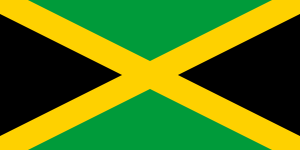 Vernon Eliot (1969-1982)
Vernon Eliot (1969-1982) -
 Glen Ritchie (1982-?)
Glen Ritchie (1982-?) -
 Kenny Logan (1981-1986)
Kenny Logan (1981-1986) -
 Neville Jones (1983-1986)
Neville Jones (1983-1986) -
 Pak Soon (1986-1990)
Pak Soon (1986-1990) -
 Kevin Clark (1987-?)
Kevin Clark (1987-?) -
 Gary Gunn (1989-?)
Gary Gunn (1989-?) -
 Matthew 'Cannonball' Crocker (1992-?)
Matthew 'Cannonball' Crocker (1992-?)
No. 12, SUBSTITUTE
-
 Alec Blackburn (1968)
Alec Blackburn (1968) -
 Chris Dylan (1969)
Chris Dylan (1969) -
 Chalky White (1972)
Chalky White (1972) -
 Eddie Eager (1972)
Eddie Eager (1972) -
 Graham Shaw (1975)
Graham Shaw (1975) -
 Trevor Cassidy (1975-1986)
Trevor Cassidy (1975-1986) -
 Roger 'Super-Sub' Dixon (1976-1980)
Roger 'Super-Sub' Dixon (1976-1980) -
 Len Peters (?)
Len Peters (?) -
 Willy Edwards (?)
Willy Edwards (?) -
 Gary Fane (?)
Gary Fane (?) -
 Cyril 'Storky' Knight (?)
Cyril 'Storky' Knight (?) -
 Terry Keelan (?)
Terry Keelan (?) -
 Nat 'Grandad' Gosden (1980-1984)
Nat 'Grandad' Gosden (1980-1984) -
 Martin Kemp (1985-1986)
Martin Kemp (1985-1986) -
 Steve Norman (1985-1986)
Steve Norman (1985-1986) -
 Bruno 'Pancho' Miller (1986-1987)
Bruno 'Pancho' Miller (1986-1987) -
 Mark Butler (1982-?)
Mark Butler (1982-?) -
 Glen Ritchie (1982-?)
Glen Ritchie (1982-?) -
 Terry Spring (1987-?)
Terry Spring (1987-?) -
 Wes Harper (1987-?)
Wes Harper (1987-?) -
 Gary Gunn (1989-?)
Gary Gunn (1989-?) -
 Alex Ritchie (1990-1991)
Alex Ritchie (1990-1991) -
 Broz Bamber (?)
Broz Bamber (?) -
 Tommy Johnson (?)
Tommy Johnson (?)
OTHERS
Managers
- Ben Galloway (up to 1973)
- Tony Storme (1973–1975)
- Roy Race (1975–1978)
- Ben Galloway (1978)
- Roy Race (1978–1982)
- Sir Alf Ramsey (1982 – caretaker)
- Roy Race (1982–1983)
- Blackie Gray (1983)
- Roy Race (1983–1992)
- Mervyn Wallace (1992 – caretaker)
- Ralph Gordon (1992–1993)
- Roy Race (1993)
- Mervyn Wallace (1993 – caretaker)
- Blackie Gray (1993–1995)
- Mervyn Wallace (1995 – caretaker)
- Roy Race (1996 – )
See also
Notes
- ↑ Up until 1992, the top division of English football was the Football League First Division; since then, it has been the FA Premier League.
References
- Official Roy of the Rovers Website
- Acton, P, Jarman, C.M, Roy of the Rovers : The Playing Years (Queen Anne Press, 1994) ISBN 1-85291-548-X
- Roy of the Rovers on BritishComics.com
- Roy Race "interview" from The Guardian
- "He shoots... he scores!"
- Melchester Rovers – GREEK
